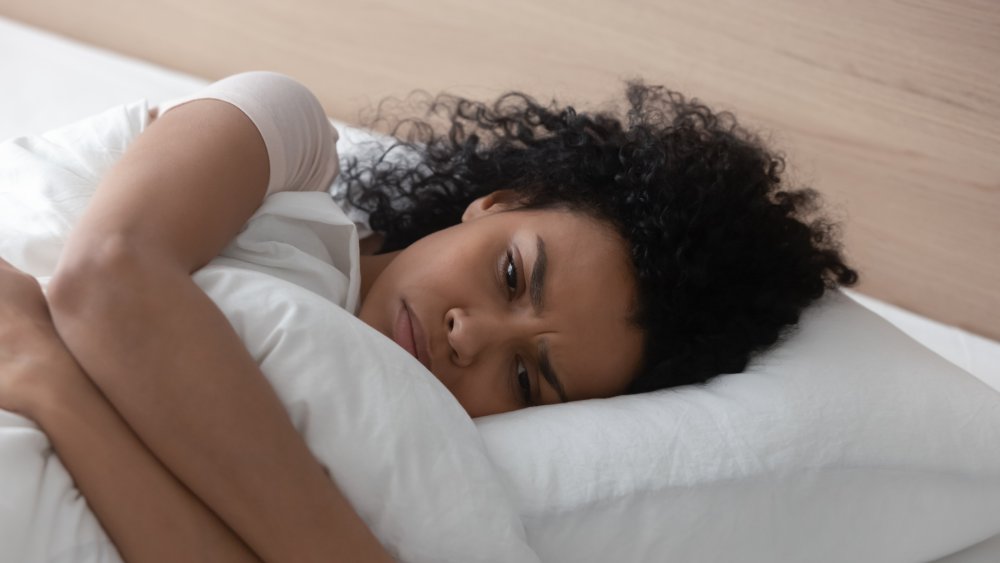The Reason You Should Eat Before Having Your Morning Coffee
Don't worry, no one is trying to take away your beloved cup of morning coffee, but researchers think they've found a better way for you to enjoy this caffeinated beverage. We've all rushed to the coffeepot after a restless night. "We know that nearly half of us will wake in the morning and, before doing anything else, drink coffee – intuitively the more tired we feel, the stronger the coffee," says Professor James Betts, Co-Director of the Centre for Nutrition, Exercise and Metabolism at the University of Bath (via University of Bath). The study monitored how sleep and coffee consumption could affect blood sugar. Poorly regulated blood sugar has been known to adversely affect our health contributing to conditions like Type II diabetes.
Lead researcher Harry Smith noted that a single night of missed sleep didn't really affect anyone's health. It should be noted that continued lack of sleep has also been known to have an adverse effect on the body, however (via National Institutes of Health). Going straight from one night's poor sleep to a strong cup of black coffee also seemed to adversely affect people. Notes Smith, "...starting a day after a poor night's sleep with a strong coffee did have a negative effect on glucose metabolism by around 50 percent." The researchers instead suggest having your morning coffee after a healthy breakfast, not before.
Coffee is not a substitute for sleep or breakfast
Admittedly, the study itself was rather small, involving just 29 healthy men and women. (Why not 30? We don't know either.) The participants went through 3 different overnight tests in random order. Test 1 was a normal night's sleep and a sugary drink in the morning. Test 2 involved being woken up every hour for five minutes and the same sugary morning drink. Test 3 mirrored test 2 when it came to sleep disruption, but participants were first given strong black coffee then followed up with the sugary drink after 30 minutes. The study results clearly indicated to researchers that coffee was not an adequate substitute for either sleep or breakfast. Of course, these findings can't provide a complete picture.
Harry Smith agrees that more research is needed thinks this study helps highlight important gaps in our knowledge. "There is a lot more we need to learn about the effects of sleep on our metabolism, such as how much sleep disruption is necessary to impair our metabolism and what some of the longer-term implications of this are, as well as how exercise, for instance, could help to counter some of this." While the results may not be conclusive, the study helps expand our knowledge about caffeine, sleep, and metabolism.

